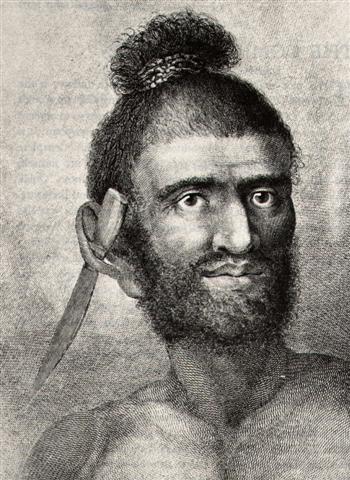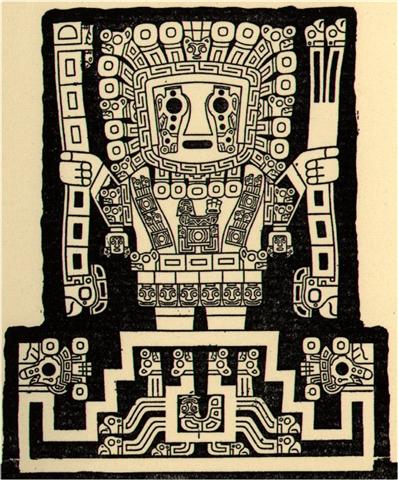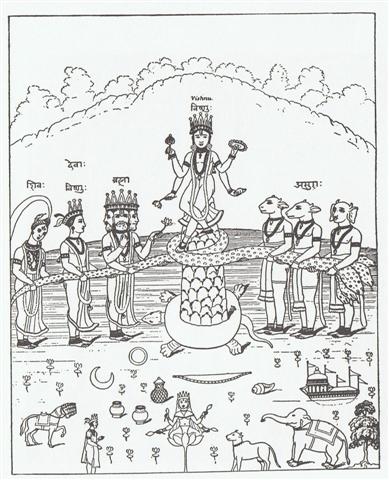The 5th glyph line could have been a special case, motivating reading nakshatra wise instead of heliacally.
Numbers carried meaning and for instance was 4 corresponding to 'death': ... Interestingly, since another meaning of shi is 'death', the number 4 is considered unlucky. (For example, the floor numbering in hotels sometimes jumps mysteriously from 3 to 5; it's also considered unlucky to give four of something as a present.) ... (Richard Smith & Trevor Hughes Parry, Japanese. Language and People.) Whereas 3 was its opposite: ... From One comes Two, and from Two comes Three. From Three everything else will then be generated ... 5 corresponded to the thumb when counting on the fingers. It was also a good number, though a very special case: ... Maui was the fifth and youngest of his parents' sons, yet when he was born his brothers knew nothing of it. They first learned that they had a brother when he was discovered one night standing behind them in the great meeting house. Everyone was present, the four brothers, their mother Taranga, and all the relations, and there was dancing going on, when little Maui crept into the house unseen, and went and sat behind his brothers. When it came to their turn to dance, and their mother stood them up and counted them so as to be ready, he stood up with them. 'One, that's Maui mua; two, that's Maui roto; three, that's Maui taha; four, that's Maui pae', she said; these names mean Maui the first, Maui the middle, Maui the side, and Maui the edge. Then she saw this other child standing with them, and cried out, 'Hullo, where did this one come from?' 'I'm your child too', Maui replied. So she counted them again and said, 'Oh no, there ought to be only four of you. This is the first I've seen of you.' And so there was a scene, with little Maui and the old woman arguing about it in the middle of the rows of dancers. In the end she became annoyed with him. 'Now, come on, out of the house!' she said. 'You are no child of mine, you belong to someone else. Go home!' But little Maui stood up for himself. 'Well then, I'd better go, I suppose', he said. 'Since you say so, I must be someone else's child. But I did think I was yours, because I know I was born at the edge of the sea, and you cut off a tuft of your hair and wrapped me in it and threw me in the waves. After that the seaweed took care of me and I drifted about in the sea, wrapped in long tangles of kelp, until a breeze blew me on shore again, and some jelly-fish rolled themself around me to protect me on the sandy beach. Clouds of flies settled on me and I might have been eaten up by the maggots; flocks of seabirds came, and I might have been pecked to pieces. But then my great-ancestor Tama nui ki te rangi arrived. He saw the clouds of flies and all the birds, and he came and pulled away the jelly-fish, and there was I, a human being! Well, he picked me up and washed me and took me home, and hung me in the rafters in the warmth of the fire, and he saved my life. And I grew, and eventually I heard about the dancing you have here in this house, and that is what brought me here tonight.' Now Taranga listened to all this in amazement. For in the custom of our people, if a child was born before it finished growing in its mother's womb and died without knowing any of the pleasures of life, it was supposed to be buried with special prayers and ceremonies, otherwise it became a kind of evil spirit, always doing mischief to the human race and hurting them out of spite, because of having missed the happiness that they enjoy. All the evil spirits had a beginning of this sort. So Maui was a little demi-god of mischief. The story he had told was true, and as his mother listened she remembered it all. 'From the time I was in your womb,' Maui went on, 'I have known the names of these children of yours. Listen,' he said as he pointed to his brothers in turn. 'You are Maui mua, you are Maui roto, you are Maui taha, and you are Maui pae. And as for me, I am Maui potiki, Maui-the-last-born. And here I am.' When he had finished, Taranga had to wipe her eyes because there were tears in them, and she said: 'You are indeed my lastborn son. You are the child of my old age. When I had you, no one knew, and what you have been saying is the truth. Well, as you were formed out of my topknot you can be Maui tikitiki a Taranga.' So that became his name, meaning Maui-formed-in-the-topknot-of-Taranga. And this is very strange, because women in those days did not have topknots. The topknot was the most sacred part of a person, and only men had them ... If Sirrah at the Full Moon was visualized in Ga5-8, then a heliacal drawing ought to show something which had mata at the top rather than at the bottom, for instance in someone's topknot.
In Ga7-5 the glyph type ihe tau was given a pair of 3-fingered hands in front, possibly indicating the return to life of the state depicted 9 weeks earlier.
From heliacal Aldebaran to nakshatra Manus Catenata there were 111 - 4 = 107 glyphs and 365 + 73 - 148 = 290 days. This was a star measure independent of the precession of the cardinal points of the Sun. 3-fingered hands are far from common, but we can see them on the central figure placed high up in the Gateway of the Sun, clutching his staffs at the equinoxes, at the horizon, at Mother Earth:
... I looked once again in Hamlet's Mill, and found another Brutus (Hamlet himself). We need him too: While Tarquin was thus employed (on certain defensive measures), a dreadful prodigy appeared to him, a snake sliding out of a wooden pillar, terrified the beholders, and made them fly into the palace; and not only struck the king himself with sudden terror, but filled his breast with anxious apprehensions: so that, whereas in the case of public prodigies the Etrurian soothsayers only were applied to, being thoroughly frightened at this domestic apparition, as it were, he resolved to send to Delphi, the most celebrated oracle in the world; and judging it unsafe to entrust the answers of the oracle to any other person, he sent his two sons into Greece, through lands unknown at that time, and seas still more unknown. Titus and Aruns set out, and, as a companion, there was sent with them Junius Brutus, son to Tarquinia, the king's sister, a young man of a capacity widely different from the assumed appearance he had put on. Having heard that the principal men in the state, and among the rest his brother, had been put to death by his uncle, he resolved that the king should find nothing in his capacity which he need dread, nor in his fortune which he need covet; and he determined to find security in contempt since in justice there was no protection. He took care, therefore, to fashion his behaviour to the resemblance of foolishness, and submitted himself and his portion to the king's rapacity. Nor did he show any dislike of the surname Brutus, content that, under the cover of that appellation, the genius wich was to be the deliverer of the Roman people should lie concealed, and wait the proper season for exertion ... He was, at this time, carried to Delphi by the Tarquinii, rather as a subject of sport than as a companion; and is said to have brought, as an offering to Apollo, a golden wand inclosed in a staff of cornel wood, hollowed for the purpose, an emblem figurative of the state of his own capacity. When they were there, and had executed their father's commission, the young men felt a wish to enquire to which of them the kingdom of Rome was to come; and we are told that these words were uttered from the bottom of the cave - 'Young men, whichever of you shall first kiss your mother, he shall possess the sovereign power at Rome' ... Brutus judged that the expression of Apollo had another meaning, and as if he had accidentally stumbled and fallen, he touched the earth with his lips, considering that she was the common mother of all mankind. The piece is cited from Livy, and puts Hatinga Te Kohe into a new perspective. Out from the staff (wooden pillar) comes a golden snake crawling, forewarning of the golden wand inside the hollow 'bamboo'. Kissing the earth means the morning star is reaching the horizon ... The brutes are stupid animals, while men are clever. Junius Brutus behaved like an animal but he was a man in disguise. According to Wikipedia: William Shakespeare, Julius Caesar, Act 5, Scene 5, (Mark Antony):
This was the
noblest Roman of them all: Like Odysseus in front of Polyphemus he was a 'no-man'. I have earlier suggested the single-eyed giant was located at midsummer (cfr at Moko) and Junius sounds like June. In Hamlet's Mill there is an illustration of how man is on one side and the brutes of spring on the other side:
|
|||||||||||||||||||||||||||||||||||||||||||||||||||||||||||||||||||||||||||||||||||||||||||||||||||||



